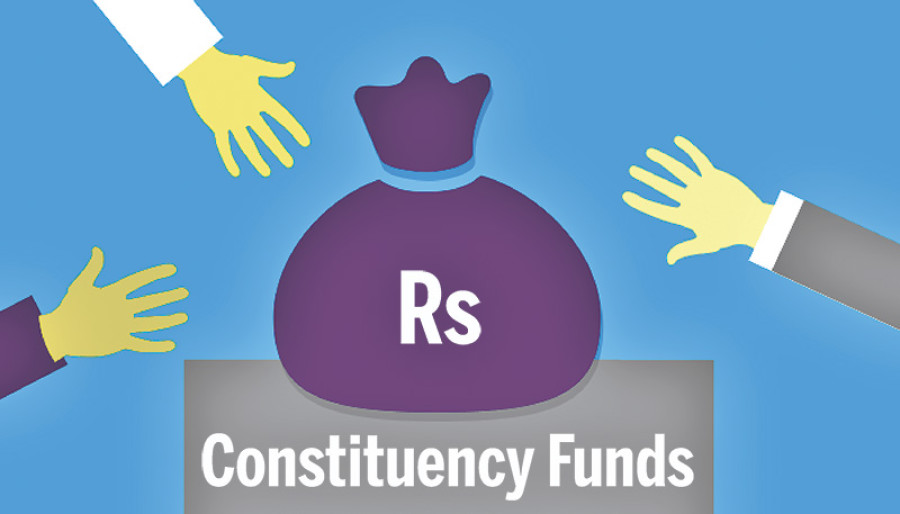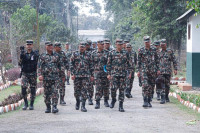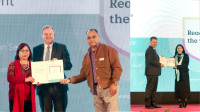National
Lawmakers ‘misuse special project funds’
Lawmakers used funds allocated to develop constituencies to finance party projects and academies named after leaders, a senior official of the Auditor General said on Monday.
Prithvi Man Shrestha
Lawmakers used funds allocated to develop constituencies to finance party projects and academies named after leaders, a senior official of the Auditor General said on Monday.
“Resources marked for special programmes of constituencies have been used to finance party-centric projects, academies run in the name of leaders, implementation of projects through consumer committees led by party cadres and creating personal seed funds,” said Deputy Auditor General Baburam Gautam.
They spent funds allocated to Constituency Infrastruc-ture Special Programme (CISP) and Constituency Development Programme (CDP) with utter disregard for established rules and regulations, the 55th annual report of the Office of the Auditor General shows.
For the 54th report, the OAG had conducted special auditing of 36 projects under CISP and CDP that were running until fiscal year 2015-16.
“During auditing the OAG found that funds under CISP and CDP were not used properly for development activities,” said Gautam.
These revelations come at a time when lawmakers are pressing for Rs100 million for each constituency under the CISP.
The District Coordination Committees (DCCs) of Bara and Rautahat spent Rs3.42 million for procuring and distributing 484 bicycles under the CISP in fiscal year 2016-17. Rules prohibit this.
As per the Local Bodies Resource Mobilisation and Management Working Procedure, no distributive programme can start while implementing target group centric projects.
The DCC Kathmandu spent Rs3.07 million on yoga practice sessions, food, sound system and tarpaulins at Koteshwor. Other spending heads include yoga practice sessions at Manahara, Kageshwori and construction of a Yoga Park in Kuleshwor through a consumer committee from funds available for a lawmaker under the CDP.
The government had allocated Rs5 million to each lawmaker under the CDP. Fund rules do not allow spending money on yoga sessions, according to the OAG.
Another glaring violation of rules was the DCC Makawanpur creating ten consumer committees to purchase electricity pillars to avoid issuing tenders.
Lawmakers selected projects that District Periodic Plan did not give priority. They spent money in fragments either on projects that required less funds or entities with links to political parties and non-government organisations violating rules of these programmes, the audit reveals.
For example, 126 projects worth Rs53.51 million in 11 districts had links with either NGO or affiliates of political parties. CISP and CDP rules prohibit such projects.
The report shows the extent of fragmenting resources. For example, they selected 90 projects in 15 districts each under the CISP in fiscal year 2015-16, although the working procedure allowed only selection of 15 projects. They launched 120 projects in 11 districts under CDP while rules permitted 12 projects.
During the group discussion conducted by the auditing team, 47.35 percent said projects under CISP and CDP did not affect their living standards while 41 percent said they made partial improvement in their living standards.
A senior official of Ministry of Federal Affairs and General Administration said result of the CISP and CDP have largely been unfruitful. “With these programmes, the lawmakers are engaged in the task of the executive which is against the principle of separation of power,” he said.




 9.88°C Kathmandu
9.88°C Kathmandu














